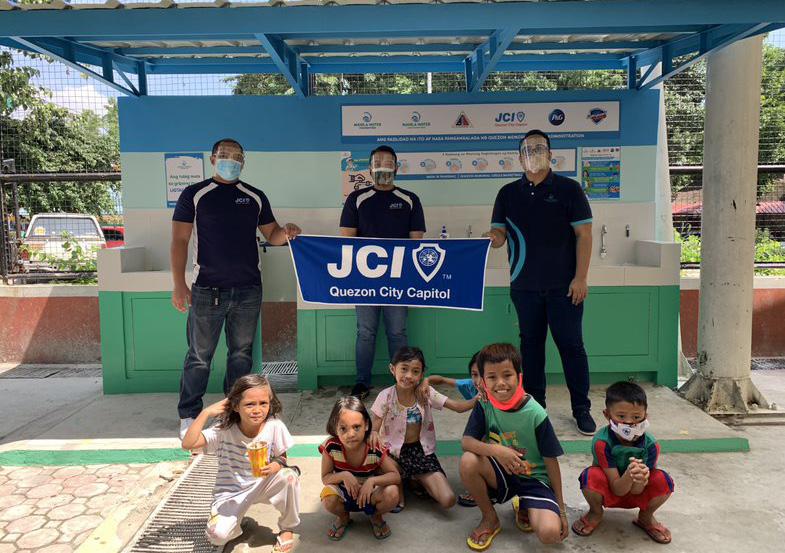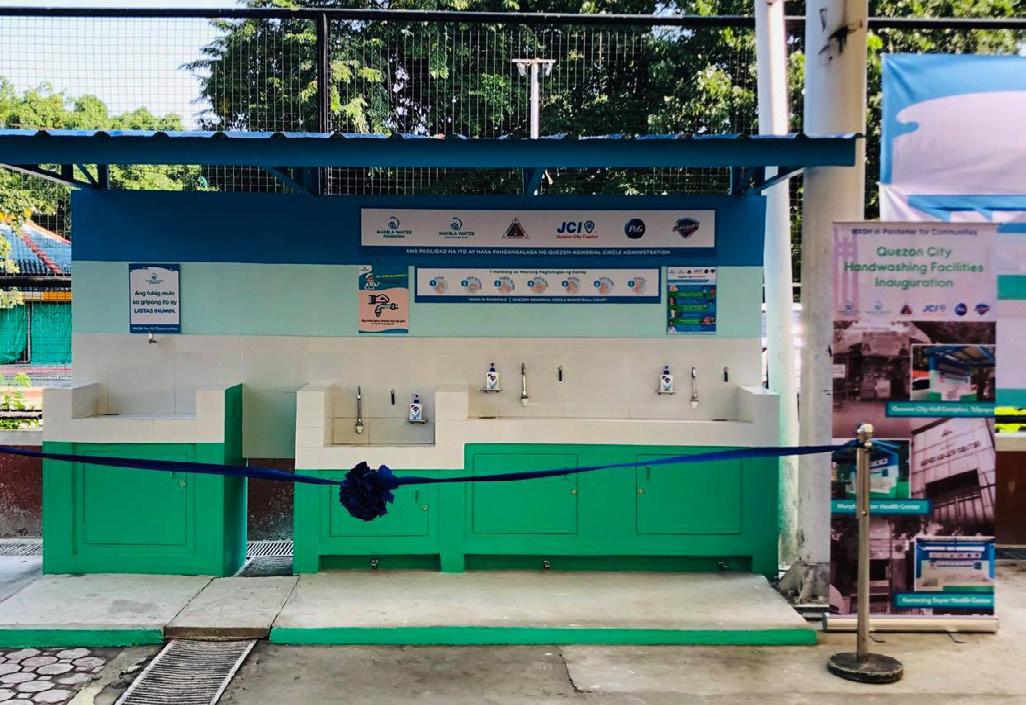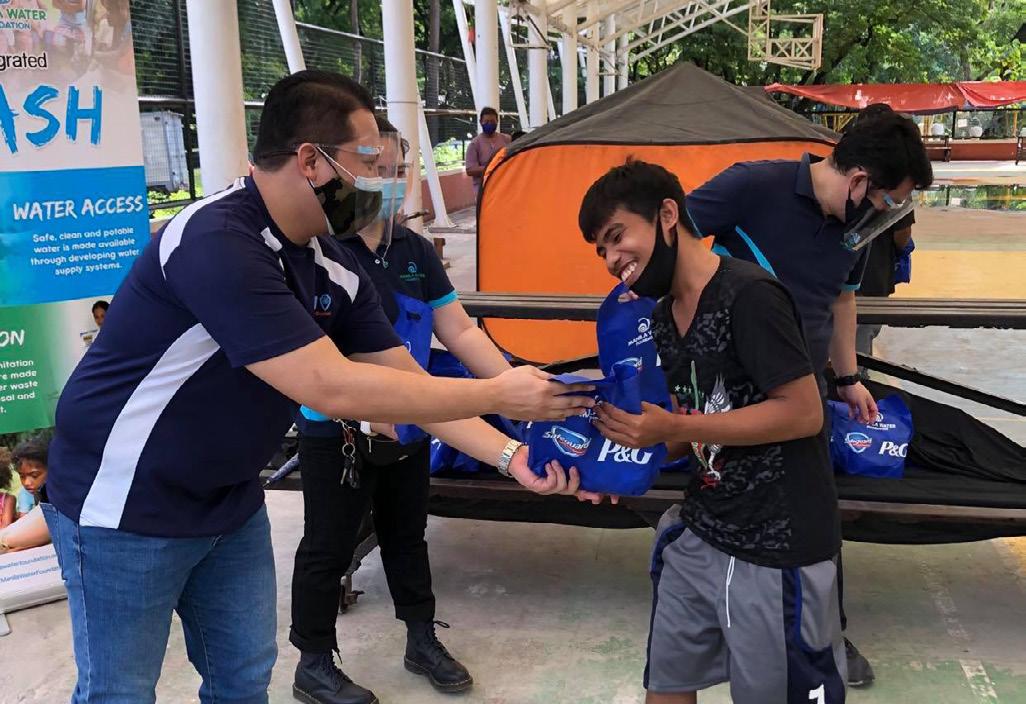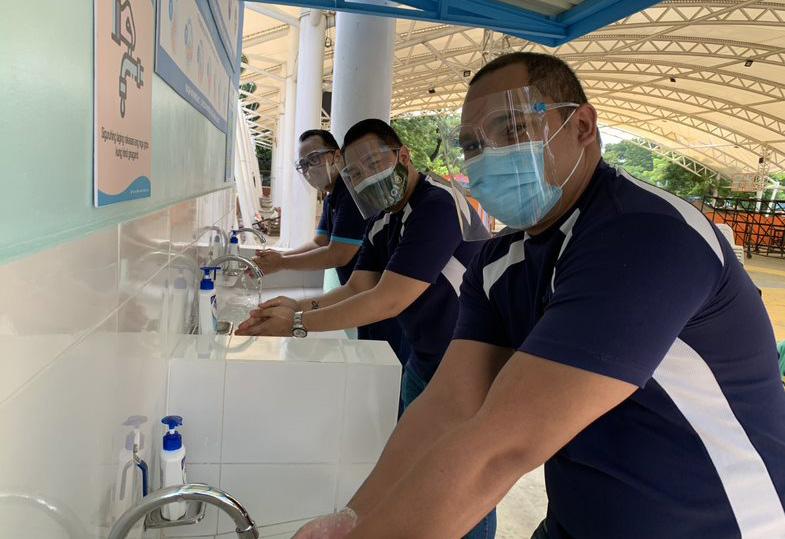
4 minute read
WASH IN PANDEMIC
Written by:
JCI Mem. Charis I. Gutierrez JCI Manilena
Advertisement
By the end of 2020, COVID-19 has infected around 75 million people in 218 countries all over the world including the Philippines. Our country has more than 460,000 in total cases where 55% are in the National Capital Region. As the pandemic spreads, millions of people are heeding the advice of health experts to wash their hands as one of the minimum public health protocols. But for about 21 million people in the Philippines who do not have access to a handwashing facility with clean water and soap, this small action to prevent infection remains to be a challenge and out of reach. This even includes about 20% of healthcare centers in the country where patients in the community receive immediate medical care.
It is in this regard that JCI Quezon City Capitol together with its partners, Manila Water Foundation, P&G Safeguard Philippines, and the Quezon City Government, collectively initiated and formally inaugurated four new handwashing facilities and rehabilitated two (2) existing ones in various strategic public areas in Quezon City on 04 September 2020.
The handwashing facility’s unique “hybrid” design allows users to turn on the faucet in two ways; either via a lever that can be used by a hand or elbow, or via a foot pedal. There is also a one-meter distance between faucets to observe physical distancing. The facility is also PWD-friendly since its features include a ramp and a lowered sink, which can also be accessed by small children. Each facility is built with three faucets with readily available soap containers and signages about COVID-19 precautionary measures, proper handwashing, and responsible use of water.
The general public frequenting the Quezon City Hall Complex, patients and medical frontliners of the Kamuning and Murphy Super Health Centers, and 64 locally-stranded individuals in Quezon Memorial Circle are immediate beneficiaries of these handwashing facilities because they can readily wash their hands as they enter or leave the premises. Compared with makeshift handwashing facilities, this “hybrid” infrastructure design is more reliable and sustainable because it has direct access to clean water and connection to a drainage system.
Salvador Patingo, a former construction worker who lost his job due to the pandemic took temporary shelter in the Quezon City Memorial Basketball Court. He shared, “Malaking tulong po ito sa amin—itong pasilidad na ito. Makakainom kami ng malinis na tubig, makakapaghandwash din po. Hindi lang po sa amin, pati po sa ibang tao po na gagamit ng pasilidad na ito (This facility is a huge help for us. We can now drink clean water and wash our hands. This is helpful not only for us but for those who will use this facility as well).”

He is only one among the sixty-four (64) locally-stranded individuals whose lives have been disrupted by the pandemic. Through the multi-sectoral collaboration, 49,741 individuals were provided with access to facilities and packages of water, sanitation and hygiene which are crucial to maintaining good health and well-being in the community. The hygiene education sessions were able to reiterate the importance of proper handwashing as the first line of defense against COVID-19 and other communicable diseases. Access to water, sanitation and hygiene (WASH) plays a key role in maintaining good public health.
Mayor Joy Belmonte stressed the importance of these facilities in relation to meeting the minimum health standards in battling COVID-19. “One of the most important, if not the most important, is washing of hands—good hygiene. [However,] so many of our communities and our people do not have access to clean water with which to wash their hands. Kaya naman, labis-labis ang pasasalamat ko, because—handwashing facilities—minsan hirap na hirap ang local government to provide this. (That’s why we are very much grateful because it is very difficult for the local government sometimes to provide these handwashing facilities.) With the help of Manila Water, we are able to provide this for our citizens.”
Belmonte also emphasized the significance of collaboration between the public and private sectors. “By working together—the public and the private sector—we will really conquer the COVID-19 pandemic.” Aside from providing these hand hygiene structures, MWF also turned over 1,800 packs of hygiene kits and IEC (information, education, and communication) materials for special concern lockdown (SCL) communities to help address the immediate sanitation needs of the residents, as well as additional 200 packs for the beneficiaries in these new handwashing facilities.
This project contributes to the advancement of several Sustainable Development Goals such as, “Goal 3: Good health and well-being”, “Goal 6: Clean water and sanitation”, “Goal 11: Sustainable cities and communities”, and “Goal 17: Partnership for the goals.” It is also aligned with the provisions of House Bill 6864 or the proposed “Better Normal for the Workplace, Communities and Public Spaces Act of 2020” which state that handwashing facilities and proper hygiene information are mandatory safety measures to serve the general public.











